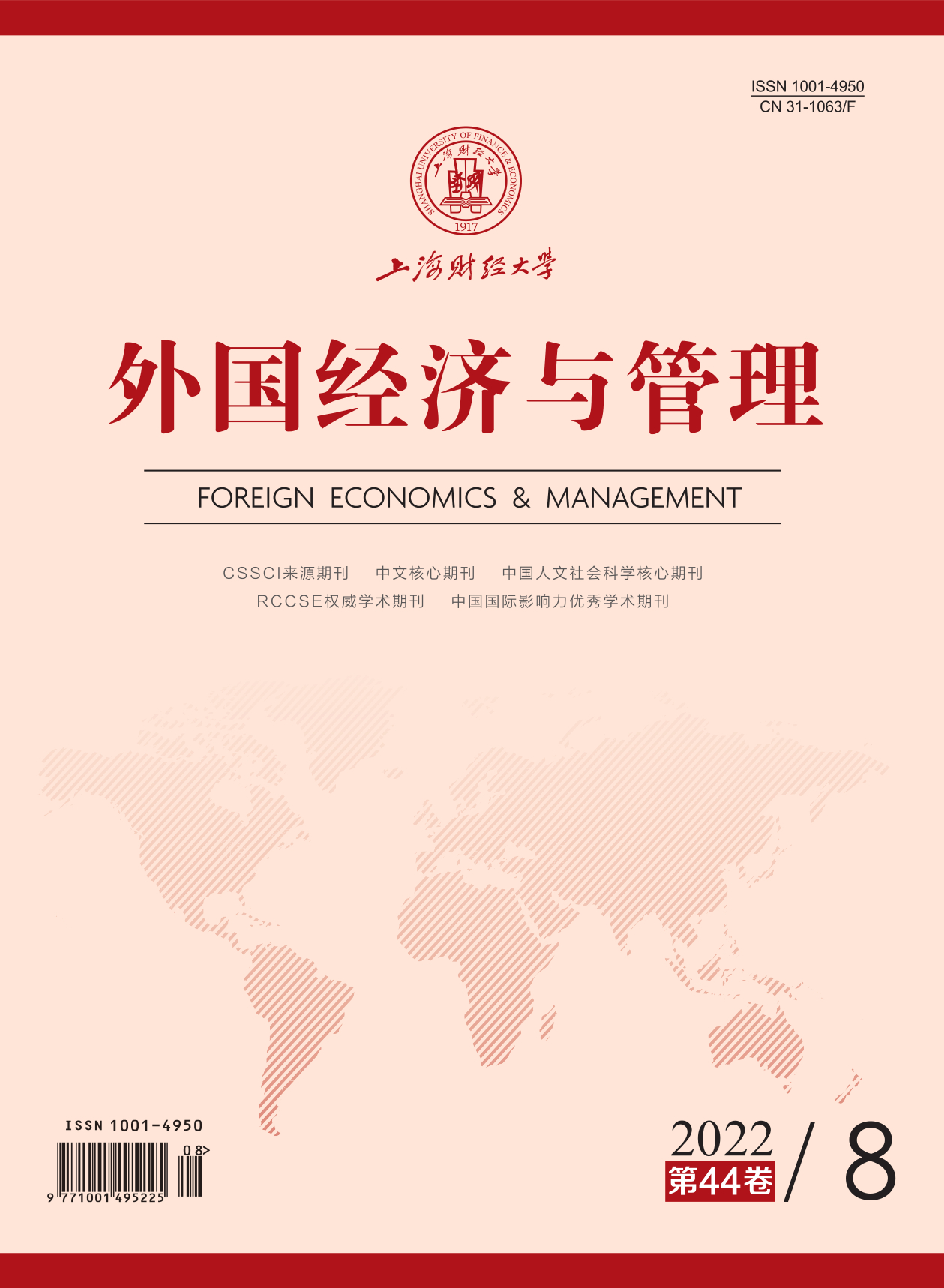[1] Chen Wenting. Research on the intergenerational entrepreneurial Inheritance of family firms-Based on the perspective of resources[J]. Journal of Dongbei University of Finance and Economics, 2012, (4):3-9.
[2] Du Yunzhou, Jia Liangding. Configuration perspective and qualitative comparative analysis (QCA): A new approach to management research[J]. Management World, 2017, (6) :155-167.
[3] Du Yunzhou, Li Jiaxin, Liu Qiuchen, et al. Configurational theory and QCA method from a complex dynamic perspective: research progress and future directions[J]. Management World, 2021, (3): 180-197, 2-13.
[4] Gao Weihe, Huang Pei, Jiang Xiaodong. Interpersonal communication and interorganizational relationship: The mediating role of psychological contract [J]. Management Review, 2014, 24(4):124-132.
[5] Li Xinchun, Han Jian, Li Weiwen. Is it succession of the family business or creating other field? The construction of the authority legitimacy of the second generation succession of the family business[J]. Management World, 2015, (6): 110-24, 87-88.
[6] Li Xinchun, He Xiaogang, Zou Likai. Family business research: Theoretical progress and future directions[J]. Management World, 2020, 36(11): 207-229.
[7] Li Xinchun, Zhang Pengxiang, Ye Wenping. Trans-generational resource orchestration and portfolio entrepreneurship in family businesses[J]. Journal of Management Sciences in China, 2016, 19(11): 1-17.
[8] Wang Shuang, Zhang Congqun, Chen Shihui, et al. Nurturing next generation’s willingness: A qualitative comparative analysis based on family system theory[J]. Management Review, 2020, 32(11): 233-244.
[9] Wang Yangmei. A pyramid model of successor's entrepreneurial growth in family firms:Multi-case study from the perspective of meaning making[J]. Management World, 2019, 35(2): 168-184, 200.
[10] Wu Bingde,, Chen Shihui, Dou Junsheng, et al. Research trend and review of trans-generational entrepreneurship in family firm[J]. Forum on Science and Technology in China, 2017a, (3):117-124.
[11] Wu Bingde, Chen Shihui, Chen Ling. Institutional change and the rise of female entrepreneurship: from the case of LN family[J]. South China Journal of Economics, 2017b, 36(3): 23-41.
[12] Wu Yuwei. On the influence of original family on individual development——From the family system theory[J]. Journal of Quanzhou Normal University, 2017, 35(3):88-92.
[13] Zhang Ming, Chen Weihong, Lan Hailin. Why can Chinese enterprises completely acquire foreign high-tech enterprises? A fuzzy set qualitative comparative analysis (fsQCA) based on 94 cases[J]. China Industrial Economics, 2019, (4): 117-135.
[14] Zhu Zhenduo, Li Fei. An empirical analysis of entrepreneurial bricolage, relationship trust and new firm performance[J]. Science Research Management, 2017, (7): 108-116.
[15] Zhu Zhenduo, Li Xinchun, Ye Wenping. “More than promotion”: An empirical study of intergenerational succession and strategic change from the perspective of paternalism[J]. Management World, 2018, (11): 65-79, 196.
[16] Zhu Zhenduo, Li Xinchun. A growth strategy for new ventures: A literature review of resource bricolage and prospects[J]. Foreign Economics & Management, 2016, (11): 71-82.
[17] Au K, Chiang F F T, Birtch T A, et al. Incubating the next generation to venture: The case of a family business in Hong Kong[J]. Asia Pacific Journal of Management,2013, 30(3): 749-767.
[18] Chen S H, Fang H C, MacKenzie N G, et al. Female leadership in contemporary Chinese family firms[J]. Asia Pacific Journal of Management,2018, 35(1): 181-211.
[19] Cherchem N. The relationship between organizational culture and entrepreneurial orientation in family firms: Does generational involvement matter?[J]. Journal of Family Business Strategy,2017, 8(2): 87-98.
[20] Clough D R, Fang T P, Vissa B, et al. Turning lead into gold: How do entrepreneurs mobilize resources to exploit opportunities?[J]. Academy of Management Annals,2019, 13(1): 240-271.
[21] Colli A, García-Canal E, Guillén M F. Family character and international entrepreneurship: A historical comparison of Italian and Spanish ‘new multinationals’[J]. Business History,2013, 55(1): 119-138.
[22] Combs J G, Shanine K K, Burrows S, et al. What do we know about business families? Setting the stage for leveraging family science theories[J]. Family Business Review,2020, 33(1): 38-63.
[23] Daspit J J, Chrisman J J, Ashton T, et al. Family firm heterogeneity: A definition, common themes, scholarly progress, and directions forward[J]. Family Business Review,2021, 34(3): 296-322.
[24] Douglas E J, Shepherd D A, Prentice C. Using fuzzy-set qualitative comparative analysis for a finer-grained understanding of entrepreneurship[J]. Journal of Business Venturing,2020, 35(1): 105970.
[25] Hallen B L, Katila R, Rosenberger J D. How do social defenses work? A resource-dependence lens on technology ventures, venture capital investors, and corporate relationships[J]. Academy of Management Journal,2014, 57(4): 1078-1101.
[26] Jaskiewicz P, Combs J G, Rau S B. Entrepreneurial legacy: Toward a theory of how some family firms nurture transgenerational entrepreneurship[J]. Journal of Business Venturing,2015, 30(1): 29-49.
[27] Jaskiewicz P, Combs J G, Shanine K K, et al. Introducing the family: A review of family science with implications for management research[J]. Academy of Management Annals,2017, 11(1): 309-341.
[28] Jaskiewicz P, Dyer W G. Addressing the elephant in the room: Disentangling family heterogeneity to advance family business research[J]. Family Business Review,2017, 30(2): 111-118.
[29] Jaskiewicz P, Neubaum D O, De Massis A, et al. The adulthood of family business research through inbound and outbound theorizing[J]. Family Business Review,2020, 33(1): 10-17.
[30] Pittino D, Visintin F, Lauto G. Fly away from the nest? A configurational analysis of family embeddedness and individual attributes in the entrepreneurial entry decision by next-generation members[J]. Family Business Review,2018, 31(3): 271-294.
[31] Reay T, Jaskiewicz P, Hinings C R. How family, business, and community logics shape family firm behavior and “rules of the game” in an organizational field[J]. Family Business Review,2015, 28(4): 292-311.
[32] Rondi E, De Massis A, Kotlar J. Unlocking innovation potential: A typology of family business innovation postures and the critical role of the family system[J]. Journal of Family Business Strategy,2018, 10(4): 100236.
[33] Schenkel M T, Yoo S S, Kim J. Not all created equal: Examining the impact of birth order and role identity among descendant CEO sons on family firm performance[J]. Family Business Review,2016, 29(4): 380-400.
[34] Waldkirch M, Kammerlander N, Wiedeler C. Configurations for corporate venture innovation: Investigating the role of the dominant coalition[J]. Journal of Business Venturing,2021, 36(5): 106137.
[35] Wang D, Zhang Z Y. Disassembling the influences of perceived family relational conflict on business family offspring’s intrapreneurial intentions[J]. International Entrepreneurship and Management Journal,2022, 18(1): 153-189.





 10767
10767  5902
5902

